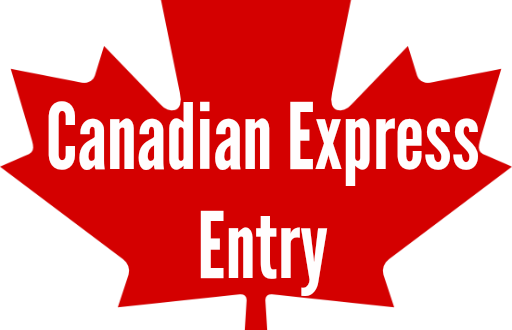
Canada, renowned for its diverse culture, strong economy, and high quality of life, is a dream destination for many immigrants worldwide. The Express Entry visa program has emerged as a streamlined and efficient way to achieve that dream. This article explores the Express Entry system, its eligibility criteria, application process, and why it has become a popular choice for those seeking to immigrate to the Great White North.
What is the Express Entry visa for Canada Program?
The Express Entry program is an immigration pathway introduced by the Canadian government in January 2015 to manage the selection of skilled workers for permanent residency. It is designed to attract highly skilled individuals who can contribute to Canada’s labor market and economy. The program is a points-based system that selects candidates based on their age, education, work experience, language proficiency, and adaptability.
Eligibility Criteria for Express Entry visa for Canada
In order to qualify for the Express Entry program, applicants need to satisfy specific requirements:
Skilled Work Experience: Candidates must have at least one year of full-time skilled work experience in one of the eligible occupations listed in the National Occupational Classification (NOC) system. This experience must be obtained within the last ten years.
Language Proficiency: Applicants must demonstrate their proficiency in English and/or French by taking a language test approved by the Canadian government, such as IELTS (English) or TEF (French).
Education: Candidates should have completed a Canadian secondary or post-secondary educational credential, or a foreign credential that has been evaluated by a designated organization.
Express Entry Profile: Candidates create an Express Entry profile online and enter details about their age, work experience, education, language skills, and other factors. Based on this information, they are assigned a Comprehensive Ranking System (CRS) score.
CRS Score: The CRS score is used to rank candidates against each other. Points are awarded for various factors, such as age, work experience, education, language skills, and more. The higher the CRS score, the better the chances of receiving an Invitation to Apply (ITA) for permanent residency.
Invitation to Apply (ITA): Candidates with high CRS scores are invited to apply for permanent residency during regular Express Entry draws conducted by the Canadian government. An ITA is usually issued to those with the highest CRS scores, but it can vary depending on the specific draw.
Application Process
Once an ITA is received, candidates have 90 days to submit their application for permanent residency. The application includes various documents, such as police clearance certificates, medical exams, educational credentials, and proof of funds to support themselves and their family members in Canada. The government aims to process most Express Entry applications within six months.
Why Choose Express Entry visa for Canada?
The Express Entry system offers several advantages to prospective immigrants:
Speed and Efficiency: Express Entry is known for its speed and efficiency in processing applications. This system reduces the waiting time for applicants compared to other immigration pathways.
No Job Offer Required: Unlike some other immigration streams, Express Entry does not require candidates to have a job offer from a Canadian employer. However, having a job offer can significantly boost a candidate’s CRS score.
Flexibility: Express Entry allows candidates to submit profiles and applications at their convenience. It is a flexible system that caters to a wide range of skilled professionals.
Permanent Residency: Successful candidates receive permanent residency in Canada, which grants them the right to live, work, or study anywhere in the country.
Permanent Residency: Successful candidates receive permanent residency in Canada, which grants them the right to live, work, or study anywhere in the country.Access to Social Benefits: Permanent residents in Canada have access to social benefits, such as healthcare coverage, education, and social services.
Pathway to Citizenship: Permanent residents can eventually apply for Canadian citizenship after meeting certain residency and other requirements.
Challenges and Considerations
While Express Entry offers numerous benefits, it’s important to be aware of potential challenges and considerations:
Competitive Nature: The CRS score is highly competitive, and not all candidates may receive an ITA in the first draw they participate in. Accumulating sufficient points may require a considerable amount of time.
Language Proficiency: Achieving a high language proficiency score can be challenging for some candidates, especially if English or French is not their native language.
Eligibility Changes: The eligibility criteria and point allocations in Express Entry can change over time. Staying updated with the latest requirements is crucial.
Job Market Competition: While a job offer is not required, having one can significantly boost a candidate’s CRS score. The job market in Canada can be competitive, and finding employment may be a challenge for some.
Conclusion
The Express Entry visa for Canada has become a popular and efficient pathway for skilled professionals seeking permanent residency in this diverse and welcoming country. While it offers many benefits, potential applicants should be prepared for the competitive nature of the system and ensure they meet all eligibility criteria. With the right qualifications and a strong Comprehensive Ranking System (CRS) score, Express Entry can pave the way to a new and promising life in Canada, offering countless opportunities and a brighter future.




